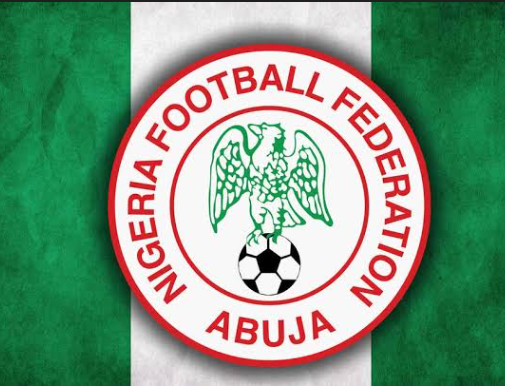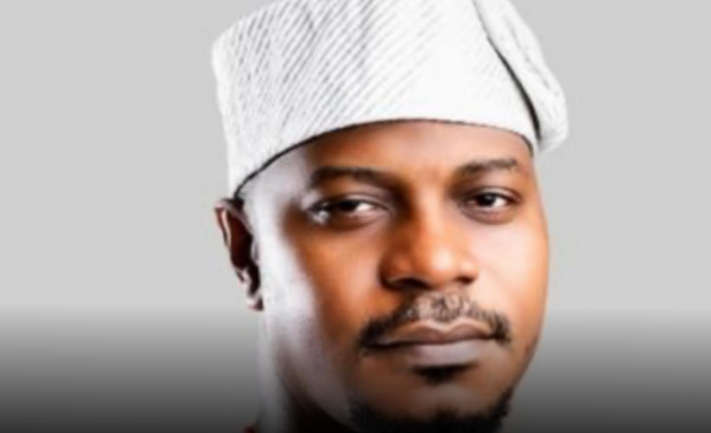
A Nation’s Heartbreak: NFF’s Public Apology to President Tinubu and Millions of Nigerians After World Cup Failure Shakes the Country

The Nigeria Football Federation (NFF) has issued one of the most emotional and unprecedented apologies in its recent history, openly expressing regret to President Bola Ahmed Tinubu, the Federal Government, and the millions of passionate football-loving Nigerians following the Super Eagles’ failure to qualify for the 2026 FIFA World Cup. For a country where football is more than a sport—where it is culture, identity, unity, and at many times a national escape—the loss that sealed Nigeria’s fate has triggered a wave of heartbreak that reverberates across every state, every community, and every household.
The apology, released in a series of posts on the NFF’s official page, came less than 24 hours after the Super Eagles fell to DR Congo in the Africa Play-off Final in Rabat. That defeat extinguished Nigeria’s hopes of making a return to football’s biggest stage after previously missing the 2022 edition. For millions, the dream of watching Nigeria dance on the global stage once again, waving the green and white flag in stadiums across North America, has been shattered for the second consecutive time. The NFF described this moment as a “profound sadness for Nigerian football,” a phrase that perfectly captures the nation’s current mood.
In their statement, the Federation acknowledged the disappointment felt across the country, emphasizing that the pain runs deep because the Super Eagles have always been more than just a team—they are a symbol of unity, hope, and pride for over 200 million people. Across social media, conversations reveal just how emotionally connected Nigerians are to their football. From small villages to bustling cities, the Super Eagles’ matches often bring people together like nothing else can. The World Cup has historically served as a source of collective celebration and identity, and missing out again feels like losing a piece of national joy.
The NFF’s apology carried a tone of humility rarely seen in its official communications. It addressed President Tinubu directly, alongside the Federal Government and the public, admitting that the expectations placed upon the team were legitimate and deserved. More importantly, it acknowledged that the performance did not reflect what Nigerians had hoped for. The NFF wrote that they “understand the gravity of this moment” and recognize that the loyalty and passion of Nigerian fans were met with disappointment. This acknowledgment was not lost on citizens, many of whom have been demanding accountability and transparency from Nigerian football authorities.
The loss itself was not just a defeat—it was a culmination of years of frustration, inconsistency, and a perceived lack of structural development in Nigerian football. Many fans believe the failure to qualify is not just about 90 minutes of play, but the result of systemic issues, ranging from administrative lapses to inadequate preparation, poor tactical decisions, and an overall decline in football development. Sunday’s match, painful as it was, only brought these long-standing issues into the spotlight once again.
In their message, the NFF attempted to reassure Nigerians that lessons would be learned, even though they stopped short of outlining immediate steps. The federation acknowledged the collective effort of the technical crew and players but made it clear that it was not enough. “We recognise that our collective effort did not deliver the outcome this nation deserved,” the statement read, echoing the sentiments of millions who felt let down after hoping for a redemption arc this time around.
Reactions across the country have been mixed. While some Nigerians appreciated the sincerity of the federation’s apology, others viewed it as a mere formality—one they believed does not address the deeper, structural failures plaguing the nation’s football. Critics argue that apologies alone cannot restore lost confidence, calling instead for reforms, transparency, and strategic investments that prioritize talent development and robust management. Several fans insisted that the apology must be followed by decisive actions, starting with restructuring the leadership, improving grassroots football, and revamping how players are scouted and prepared for major tournaments.
However, amid the anger and disappointment, some Nigerians have taken a more hopeful stance. They see the apology as a first step in acknowledging failure and believe that accountability, when embraced, can serve as a catalyst for change. Many have called on the government to play a more active role in ensuring the right systems are put in place, while others encouraged the NFF to engage former legends of the game in rebuilding a stronger football foundation.
The sadness of the missed World Cup opportunity is also tied to the emotional rollercoaster the Super Eagles have given Nigerians in recent years. From shining moments in the African Cup of Nations to frustrating inconsistencies in qualifiers, the journey has been turbulent. The hope that the 2026 World Cup—hosted by the US, Mexico, and Canada—would mark Nigeria’s triumphant return was powerful, given the large Nigerian diaspora in these countries who were eager to watch their team live on the global stage. That dream has now been postponed, and the sense of loss extends to both local fans and those abroad.
As Nigerians process this disappointment, the NFF faces its toughest test yet: regaining the trust of a nation that has always rallied behind its team with unmatched passion. Football in Nigeria is an emotional language spoken by all—across tribes, religions, and backgrounds—and the fans’ loyalty remains unwavering even in moments of heartbreak. But the federation’s future actions will determine whether this apology marks the beginning of genuine transformation or remains just another message in a long history of unmet promises.
For now, Nigerians are left with memories of what could have been, replaying the painful night in Rabat and imagining a future where the Super Eagles rise again. The NFF’s apology may not erase the sting, but it acknowledges what every Nigerian feels: heartbreak, disappointment, and the lingering hope that someday soon, the nation will return to the global stage not just as participants, but as contenders carrying the pride of Africa on their shoulders.


